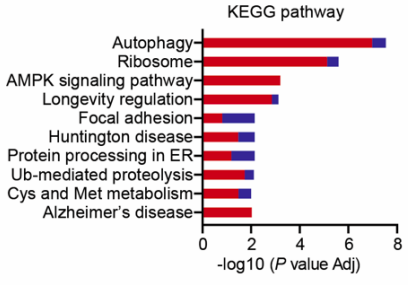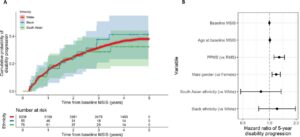
Iason Keramidis, et al. – Université Laval.
In this study, Keramidis and colleagues report that inducing chronic hippocampal hyperactivity in wild-type mice produces proteomic changes similar to those observed in the 5xFAD mouse model of AD. These include upregulation of proteins relating to protein translation, phosphorylation, and autophagy, as well as downregulation of excitatory synapse components. Hyperactivity also led to increased production of Αβ42; given that Αβ42 can promote hyperactivity, this suggests that the two form a positive feedback loop to drive AD pathology.




